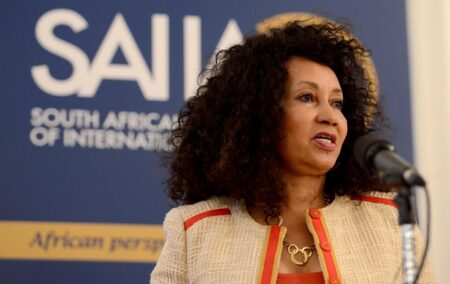When South Africa’s final constitution was up for certification by the Constitutional Court in 1996, the South African Institute of Race Relations warned against the inclusion of socio-economic rights.
We pointed out that few other countries included such rights in their constitutional bills of rights, because they were in practice difficult to enforce. They also risked undermining confidence in both the constitution and the courts if socio-economic rights were not brought to fruition.
The court dismissed our objections, but our scepticism has been vindicated.
Bill of rights
The bill of rights (chapter 2 of the constitution) contains most of the standard political rights, such as freedom of expression and association. It also contains cultural and religious rights, the right of access to the courts, procedural rights, and property rights.
But what makes the South African constitution unusual is the long list of socio-economic rights it incorporates. This indeed is why the document had been widely hailed as one of the most progressive in the world.
The list of socio-economic rights is impressive. Everyone has “the right to an environment that is not harmful to their health”, “the right to have access to adequate housing”, “to have access to health care services [and] sufficient food and water [and] social security”, and “to a basic education”.
The state is enjoined to “take reasonable legislative and other measures, within its available resources, to achieve the progressive realisation of these rights”.
Some of these rights have been realised. Millions more social grants are being paid than when the African National Congress (ANC) came to power. Millions more children are in school. Millions of houses have been built. Millions of people have received vaccinations.
Poor record
Otherwise, however, the ANC’s record on socio-economic rights is mostly terrible. And one of the politicians responsible is Lindiwe Sisulu, currently minister of tourism and recently in the headlines for her attacks on the constitution and the judiciary. One of her previous portfolios was public service and administration, the constitution requiring, among other things, “efficient, economic, and effective use of resources”.
Among other portfolios she previously held were housing as well as “human settlements, water, and sanitation”. Responsibility for these services is spread across all three levels of government, but nearly twenty-eight years after she and her party came to power, millions of people still live without modern sanitation or clean water. So much for the socio-economic rights that the 1996 constitution purported to guarantee.
The state’s resources are of course limited, but failure to implement socio-economic rights arises less from that than from indifference and incompetence, and from the fact that so many billions of rands have been stolen or squandered.
Failings in education and public health care are not Ms Sisulu’s direct responsibility, but the message is the same. Entrenchment of educational and health-care rights in the constitution means very little in the face of ministers and officials who are inept, corrupt, callous, or indifferent, and who are seldom held to account, let alone prosecuted.
The constitution guarantees a “basic education”, but very high levels of illiteracy and innumeracy indicate that millions of schoolchildren do not get even a “basic” education before they drop out of school. Only a third of state schools have computer facilities, only a quarter have a library, and only a fifth have a laboratory.
Healthcare
As for the constitutionally entrenched right to health care, who can doubt that if the Charlotte Maxeke Hospital were privately owned and managed there would probably have been no fire? Or that, even if there had been a fire, the hospital would by now be back in full working order? Nor is this the only public hospital in a state of disrepair.
In less than a year after the insurrection of July 2021, burnt-out shopping malls are being rebuilt. Looted supermarkets and other facilities are coming back into operation. That is how the private sector behaves in the wake of destruction. It fixes itself.
What a contrast to the state! All across the country, municipal facilities, including roads, electricity networks, water works, and sewerage systems, have fallen into disrepair. This has been going on for years. It is called “service delivery” failure. But it is worse than that: incompetence, indifference, theft, corruption, nepotism.
Apart from crime, schooling, and unemployment, collapsed municipal water and sanitation systems are the ANC government’s biggest failures.
To most of the politicians and officials in charge, whether at national, provincial, or local level, nothing bothers them less than the notion that they are failing to implement some of the socio-economic rights the constitution purports to guarantee. This is because cadre deployment and racial preferencing take precedence over “service delivery”.
Moreover, there is no sign that Cyril Ramaphosa’s government plans to do very much to repair the destruction their policies have wrought. Despite the Zondo Commission, few prosecutions are likely. Cadre deployment will continue, affirmative action is being intensified. Black economic empowerment demands are escalating.
President Ramaphosa said last month that the ANC remained committed to the constitution, the bill of rights, and the judiciary. But he also said his party needed to “commit towards deepening and defending our national democratic revolution”.

